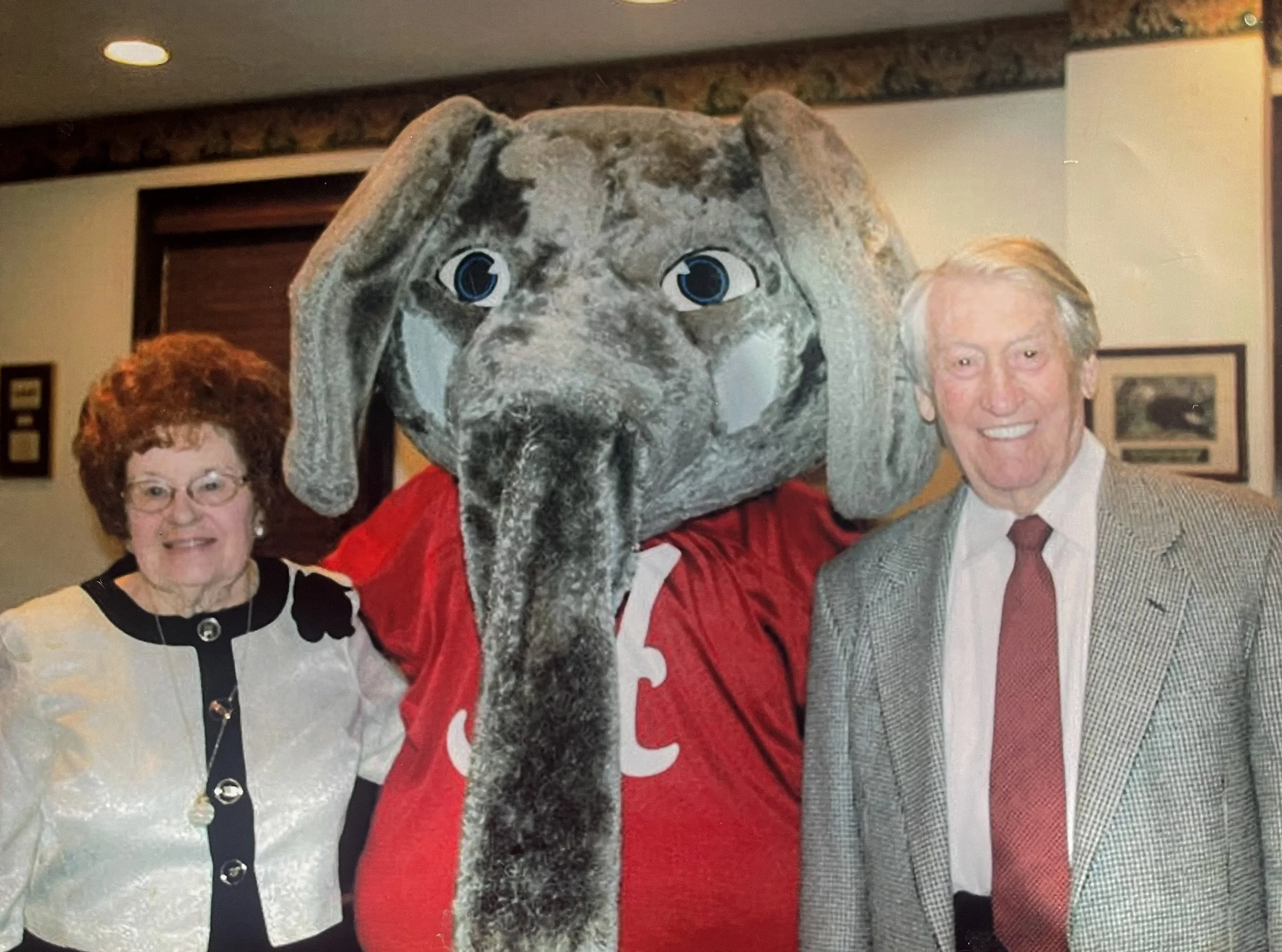From Mules to Millions
A. J. Taft came from humble beginnings and remained humble despite his success.
Words by Micah Harrison and Jenny Lynn Davis | Images Courtesy of the A.J. Taft Family
Andrew Jackson (A.J.) Taft's life journey is a remarkable tale of tenacity, entrepreneurship, and unwavering commitment to his business and the people around him. Born in 1917 on a farm south of Cordova, Alabama, Taft's early years were marked by the challenges of a large family and limited educational opportunities. Despite these humble beginnings, his life would become synonymous with success in the coal industry and a legacy of generosity.
Taft's upbringing in the Barney community was one of hard work and resourcefulness. He came from a family of ten children, where every hand was needed to make ends meet. Even in his early years, Taft displayed a strong work ethic, assisting his father in selling farm produce and enduring frigid winters with his resourceful mother's help. Although he left school prematurely, he often humorously mused about missed opportunities, half-jokingly suggesting that with an education, he might have run for President.
Taft's entrepreneurial spirit ignited when he acquired his first coal truck as a young man. This marked the beginning of his remarkable journey in the coal industry. He started by hauling coal to Birmingham, selling it by the ton and unloading it with a scoop shovel.
However, the turning point in Taft's career came in the 1930s when he joined Dennis Wynn at a mine in the Aldridge community. In 1946, Wynn decided to leave the business and sold his mining interests to Taft, marking the beginning of Taft's ownership and operation of an underground mine site. He and his dedicated team used mules to cut into hillsides, exposing coal seams. They then laid tracks to transport the coal, and mining commenced once the infrastructure was in place. As the coal cars filled, mules dutifully pulled them to their next destination.
Over the next three decades, Taft's business evolved from underground to surface mining and became known as Taft Coal Sales & Associates, Inc. Under his leadership, the company became Alabama's largest surface mining operation, producing an impressive 1.5 million tons of coal annually. Throughout its lifetime, the company acquired five draglines, with the final being a thirteen-million-dollar model known as "Chief," a nickname also given to Taft.
The company's growth was particularly pronounced starting in 1971 and continuing through the next two decades, reaching its height in the 1980s. At its peak, Taft Coal employed approximately 165 people. Many of these dedicated employees spent 30 to 40 years with the company, a testament to the caring work environment that Taft fostered.
Randy Key, who began working at Taft Coal immediately following his high school graduation in 1976, remained with the company until its sale to United Land Corporation in 2008. Reflecting on his time with Taft Coal, Key remarks, "Mr. Taft knew everybody that worked for him. That's not an exaggeration. He even knew the wives and kids of all his people and what sports and activities the kids were involved in. It was a work environment that was really like a close-knit family."
“I loved Mr. Taft and the way he treated his employees,” adds Terry Paul Combs, another longtime employee and friend. “He was just one of us. Yes, he was the owner and boss, but he never looked down on anyone. He even felt that it was his responsibility to re-stock the drink machine. I will always admire him and appreciate my 39 years working with him.”
Taft’s daughter, Denise Taft Richards, adds, "So many people contributed to the company's success, worked hard to make it what it was, and my father appreciated every single one of them."
While Taft's business success is undeniably impressive, what truly sets him apart is his unwavering commitment to giving back to the community. He performed countless acts of generosity, whether through donations to local schools, churches, or individuals in need. He did it not for recognition but because he believed it was the right thing to do.
Diane Taft Rhodes fondly recalls her father's charitable nature, saying, "He felt that the Lord had blessed him, and it was his duty to bless others. If there was a need, he wanted to help meet it. He never wanted recognition for it, though. He had the biggest heart and was truly genuine, never expecting anything in return."
Rhodes also notes that her father's faith was a central pillar of his life. "Living a good Christian life was his main mission," she says. "Even in his final years, when Alzheimer's started to take hold of him, I'd still find him listening to gospel music and praising God. He never lost Who mattered most."
In his downtime, Mr. Taft enjoyed spending time on his farm in Curry, where his love for agriculture and rural life was a source of solace. It was on this farm that he found peace and joy, often tending to the land with the same dedication he applied to his business.
Taft cherished his time with his children and grandchildren. These moments provided a respite from the demands of the coal industry and allowed him to connect with his loved ones on a deeper level.
In addition to his family and farming, Mr. Taft had another passion that endeared him to many – supporting Alabama Football. He was an avid fan, cheering for the Crimson Tide with unwavering enthusiasm. His love for the team brought him closer to fellow supporters and added another dimension to his vibrant life.
A.J. Taft's journey came to a close in 2017 when he passed away at the age of 100. In the hearts and minds of those who knew him, Taft will forever be remembered not only as a mining magnate but as a kind and generous soul whose life left an indelible mark on the Walker County community and the coal industry as a whole. 78




